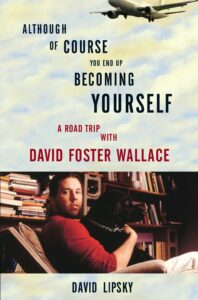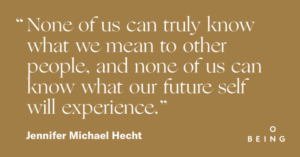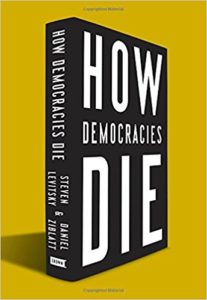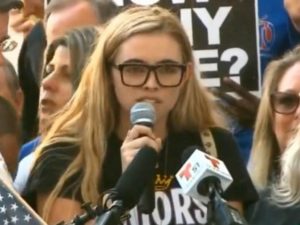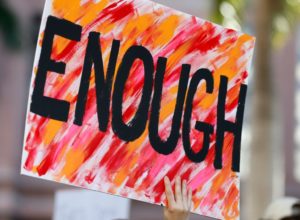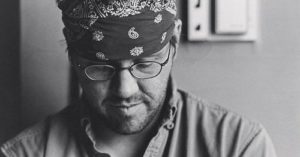David Foster Wallace
Believing into being.
December 18, 2020‘Suicide is such a powerful end; it reaches back and scrambles the beginning. It has an event gravity: eventually, every memory and impression gets tugged in that direction.’ -David Lipsky
On Being
Jennifer Michael Hecht on suicide, and how we believe each other into being:
‘We believe each other into being.’
That’s the message the philosopher, poet, and historian, Jennifer Michael Hecht, puts at the center of her unusual writing about suicide. She’s traced how Western civilization has, at times, demonized those who died by suicide, and, at times, celebrated it as a moral freedom. She has struggled with suicidal places in her life and lost friends to it. She proposes a new cultural understanding based on our essential need for each other.
Democracy, Media Literacy, Civic Engagement
February 17, 2018“The Americans are very impressionable people; they see what they want to see. I have a lot of respect for them. I am not upset at all that I ended up on this list. If they want to see the devil, let them see him.”
Russian Oligarch Yevgeny V. Prigozhin, one of 13 Russians indicted by a federal grand jury on Friday, February 16th, 2018, for interfering in the American election.
Full Indictment:
“Facebook, Twitter and Google have all identified the Internet Research Agency as a prime source of provocative posts on divisive American issues, including race, religion, gun laws and gay rights, particularly during the 2016 presidential election. Facebook found, for example, that the agency had posted 80,000 pieces of content that reached more than 126 million Americans.” [NYTimes]
Tedx Wandsworth/2.8.18
Imagine a world where democracy lives up to its lofty promise… where problems are solved by debate and compromise rather than vitriol and internet trolls. A nice thought isn’t it?” asks Brian Klaas. As a scholar of democracy and authoritarianism, he’s seen fear-and-division politics rising across the world, but says we’re more powerful than we think in reversing this trend. Beyond the uncomfortable stats of our civic shortcomings; he shares moments with those he’s met risking their freedom and their lives for a democratic choice; and offers five concrete ways we can start changing what we don’t like.
Thoughts from Brian Klaas:
Democracies around the world are dying. Remember: Being a citizen is a full time job.
V
O
T
E
#2018
People who say, “my vote doesn’t matter”? Wrong.
Politicians pander to those who vote. (Who votes in majority? Older white males.)
Democracies are dying. One man in Russia who was being followed by the secret police told Klaas, “You don’t know how lucky you are.”
“There are these two young fish swimming along and they happen to meet an older fish swimming the other way, who nods at them and says “Morning, boys. How’s the water?” And the two young fish swim on for a bit, and then eventually one of them looks over at the other and goes “What the hell is water?”
-David Foster Wallace
We need to remember how powerful we are.
Of the people.
By the people.
For the people.
Ongoing paradox: People are unhappy with the system, but not many do much to understand it…or do anything.
In the midterm election in 2014, 36% of registered voters voted. 64/100 didn’t bother.
In the 2016 presidential election? 60% voted. And the current president was voted in by 30% of the US population. Apathy voted a candidate into the Oval Office.
80,000 people tipped the election…enough to fit into a football stadium.
We get the candidates we deserve.
P A R T I C I P A T I O N
Our collective power to save democracy:
-
Vote in every election…local and national, because the local candidates become national candidates.
-
Before the election talk to 10 people before voting.
-
Be the boss to your politicians; they work for us. Whether they agree with you or not, tell them how you feel.
-
Reach out to someone who believes completely differently from what you believe. And listen.
-
Run for office or organize a new political group.
Actions become ripples and those ripples become tsunamis.
Think about it. If women waited for an invitation, we still wouldn’t have the right to vote.
2018 is ours. And the youth? They are activating.
︶⁀°• •° ⁀︶
Go see it. It will give you hope. (Stay until the very final credit rolls.) ☆ ☆ ☆ ☆ ☆
David Foster Wallace
January 25, 2018Our dread of both relationships and loneliness … has to do with angst about death, the recognition that I’m going to die, and die very much alone, and the rest of the world is going to go merrily on without me.
I’m not sure I could give you a steeple-fingered theoretical justification, but I strongly suspect a big part of real art-fiction’s job is to aggravate this sense of entrapment and loneliness and death in people, to move people to countenance it, since any possible human redemption requires us first to face what’s dreadful, what we want to deny.
Really good work probably comes out of a willingness to disclose yourself, open yourself up in spiritual and emotional ways that risk making you look banal or melodramatic or naive or unhip or sappy, and to ask the reader really to feel something. To be willing to sort of die in order to move the reader, somehow. Even now I’m scared about how sappy this’ll look in print, saying this. And the effort actually to do it, not just talk about it, requires a kind of courage I don’t seem to have yet. Maybe it’s as simple as trying to make the writing more generous and less ego-driven.
Indeed.
[Maria Popova]
David Foster Wallace
July 14, 2015“If your fidelity to perfectionism is too high, you never do anything.”
